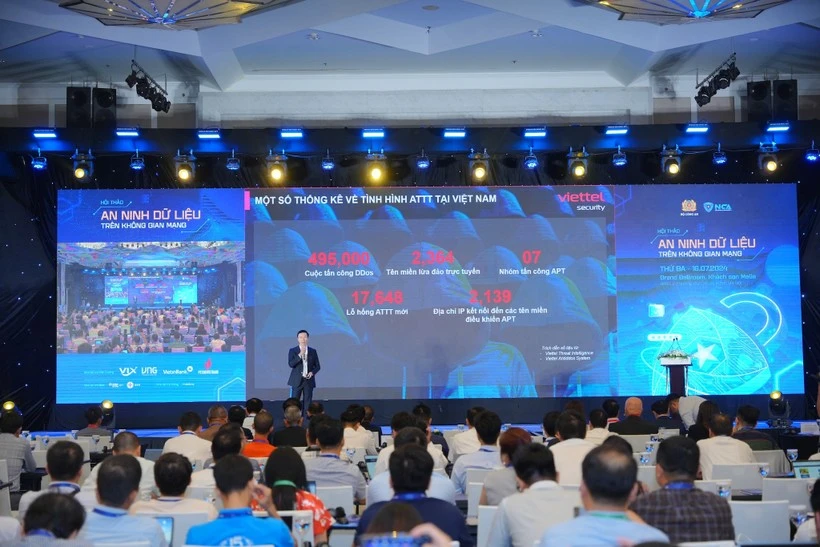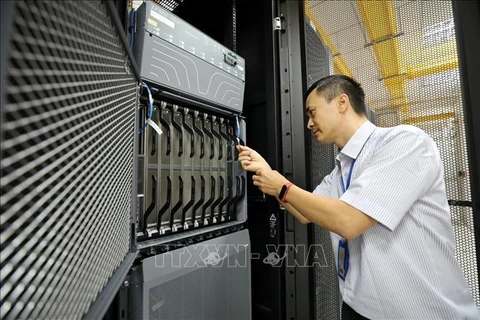
Hanoi (VNA) – With nearly 80 million users, or over two-thirds of the population, Vietnam ranks 7th in the world in terms of internet access. However, this growth is accompanied by a surge in data security risks, posing a formidable challenge for cybersecurity experts.
Challenges in data protection
At a seminar on data security held in Hanoi on July 16, Le Quang Ha, Deputy Director of Technology at Viettel Cyber Security Company, presented alarming statistics from the Viettel Threat Intelligence. In 2024 alone, Vietnam experienced 10 data encryption attacks, 56 ransomware attempts, and 46 data breaches, with 13 million data records put to sale and 12.3GB of source code leaked.
The country also faced 495,000 distributed denial-of-service (DDoS) attacks, 2,236 phishing domains, over 17,600 new cybersecurity vulnerabilities, and more than 2,130 IP addresses linked to Advanced Persistent Threat (APT) command domains. Notably, seven APT groups are active in Vietnam, targeting government agencies, financial institutions, the energy sector, and critical infrastructure.

Human error, unfortunately, remains a significant chink in the armor, accounting for 74% of data breaches, with 56% resulting from unintentional user errors and 26% from malicious actions by internal users or cybercriminals within the organisation.
Compounding the issue is the organised trade of personal data as warned by Lt. Gen. Nguyen Minh Chinh, Director of the Cybersecurity and Hi-tech Crime Prevention Department under the Ministry of Public Security.

He pointed out that some vendors even provide warranties and update capabilities, indicating the scale and sophistication of this illicit market. Large volumes of personal data are openly sold on the internet for extended periods, making it easily accessible for purchase.
Addressing data protection challenges
From a business perspective, Ha underlined the need to strengthen guidance and oversight to ensure compliance with national policies and regulations on cybersecurity and data protection.
He urged organisations and businesses to improve information sharing and enhance the detection of data breaches and emerging cybersecurity threats. He also advocated for expanding international cooperation to investigate, prevent, and address information security risks and incidents while establishing a network of information security units and experts ready to respond to major incidents.
Sen. Lieut. Col. Le Xuan Thuy, Director of the National Cyber Security Centre, stressed the importance of promptly reporting any incidents to relevant authorities and following their coordinated response measures.

A unified front is essential to combat the growing cyber threat. Effective response requires a well-coordinated force comprising government agencies, cybersecurity experts, and the private sector. This collaborative effort is crucial to defend against cyberattacks, particularly in the face of targeted attacks or even full-scale cyber warfare, he said.
A key outcome of the seminar was the proposal of a cybersecurity information-sharing platform. This platform aims to facilitate intelligence sharing, incident response, threat monitoring, and strategic decision-making.
As cyberattacks grow increasingly sophisticated, Vietnam must redouble its efforts to safeguard its digital infrastructure and protect its citizens from the growing specter of cyber threats./.






















